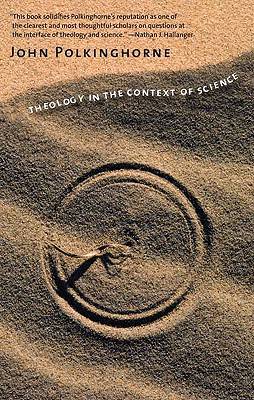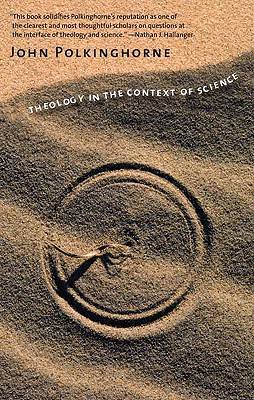
- Retrait gratuit dans votre magasin Club
- 7.000.000 titres dans notre catalogue
- Payer en toute sécurité
- Toujours un magasin près de chez vous
- Retrait gratuit dans votre magasin Club
- 7.000.0000 titres dans notre catalogue
- Payer en toute sécurité
- Toujours un magasin près de chez vous
Description
A renowned physicist-theologian provides a new framework for dialogue between science and religion
Just as gendered, cultural, and geographical perspectives have illuminated and advanced theological thought, the contributions of twentieth-century science have much to offer theology. In his latest book, physicist-theologian John Polkinghorne, renowned as one of the world's foremost thinkers on science and religion, offers a lucid argument for developing the intersection of the two fields as another form of contextual theology.Countering recent assertions by "new atheists" that religious belief is irrational and even dangerous, Polkinghorne explores ways that theology can be open to and informed by science. He describes recent scientific discourse on such subjects as epistemology, objectivity, uncertainty, and rationality and considers the religious importance of the evolution in these areas of scientific thought. Then, evaluating such topics as relativity, space and time, and evolutionary theory, he uses a scientific style of inquiry as a foundation on which to build a model of Christian belief structure. Science and theology share in the great human quest for truth and understanding, says Polkinghorne, and he illustrates how their interaction can be fruitful for both.
Spécifications
Parties prenantes
- Auteur(s) :
- Editeur:
Contenu
- Nombre de pages :
- 192
- Langue:
- Anglais
Caractéristiques
- EAN:
- 9780300164565
- Date de parution :
- 20-04-10
- Format:
- Livre broché
- Format numérique:
- Trade paperback (VS)
- Dimensions :
- 132 mm x 206 mm
- Poids :
- 231 g

Les avis
Nous publions uniquement les avis qui respectent les conditions requises. Consultez nos conditions pour les avis.






